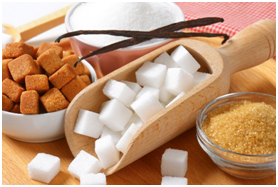Proper dental health positively contributes to your mental, physical, and social well-being, allowing you to enjoy all of life’s potential. Specifically, it allows you to eat, speak and socialize free of discomfort, pain, and embarrassment.
To maintain good oral health, you need to focus on how much, what type and how often you consume certain foods. Consuming some types of foods, such as sugar, can impact your mouth, gums, and teeth far after you have digested your food.
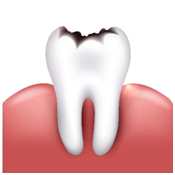 The Dangers of Sugar for Your Teeth
The Dangers of Sugar for Your Teeth
Your mouth is full of bacteria — many are beneficial, while others are harmful. The harmful bacteria feed on the sugar you consume and create acids that attack and damage your tooth enamel, the protective, shiny outer layer of your teeth.
The acids form a bacterial infection that could lead to cavities and cause holes in your teeth. Left untreated, cavities can advance past your enamel into your tooth’s deeper layers, leading to potential tooth loss and pain.
How Does Sugar Cause Cavities?
Decay occurs when plaque bacteria feed on the sugar you are consuming in your diet.
When you consume sugar, it immediately begins interacting with the plaque bacteria to produce acid. The acid then dissolves your enamel slowly, creating the cavities in your teeth, thereby making the acid the culprit for tooth decay — not the sugar.
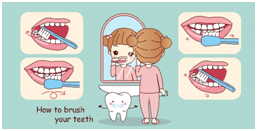 What You Can Do to Protect Your Teeth
What You Can Do to Protect Your Teeth
You do not have to avoid sugar altogether to have proper dental hygiene. If you follow some basic practices, you can still consume sugar and maintain healthy teeth. Here are six tips to help you avoid cavities while still enjoying your sugary treats.
Brush Often
Even with a busy schedule, you still need to keep your teeth clean. Be sure to brush your teeth at least twice a day for two minutes with a fluoride toothpaste.
Do not Let Sugar Sit in Your Mouth
Just as the quantity of sugary, sticky food you put in your mouth counts, so does the frequency in how you ingest it and how long it sits in your mouth. The longer you allow sugary foods to remain in your mouth, the more damage there can be since you will be leaving your teeth in acidic conditions longer.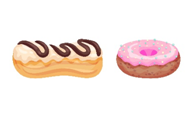
Consume Sugary Foods with Your Meal
The best time to enjoy your sugary foods is right before you eat a meal. You will generate saliva as you eat your meal, helping to wash away the sugars from your teeth. Limit soda and other sugary beverages to mealtime, as well.
Chew After Eating
If you cannot brush your teeth or rinse your mouth out after consuming a meal, try chewing on a piece of cheese, which may help to neutralize the teeth-damaging acids. Apples and other fibrous, crunchy foods are good, too, since they help your body produce saliva. If anything, pop a piece of sugar-free gum in your mouth if you do not have the opportunity to brush after eating.
Watch Your Diet
An unhealthy diet can also cause tooth decay and gum disease. Each time you eat sugars, starches, and carbohydrates, you are building up those plaque acids that can damage the enamel on your teeth, breaking it down and leading to cavities.
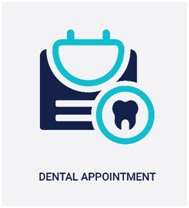
- Know the Warning Signs You are Consuming Too Much Sugar
Some clear signs you may be indulging a little too much in this sweet goodness include that:
- You are breaking out in acne
- You are tired or feel wiped out
- You receive a high cholesterol diagnosis
- You receive a high blood pressure diagnosis
- Your jeans become too tight
- You crash following an exercise session
- You have cavities
The most critical component to good oral care is scheduling regular dental examinations and hygienist appointments. The dentist can spot any signs of tooth decay early enough to help reduce or reverse the damage. To set up your appointment, contact Valley Dental Practice on 01255 220322.

